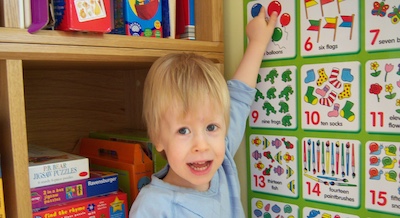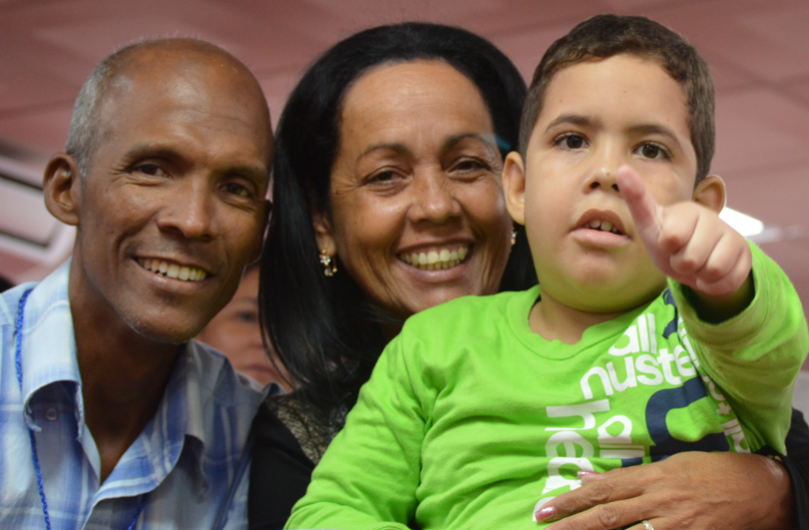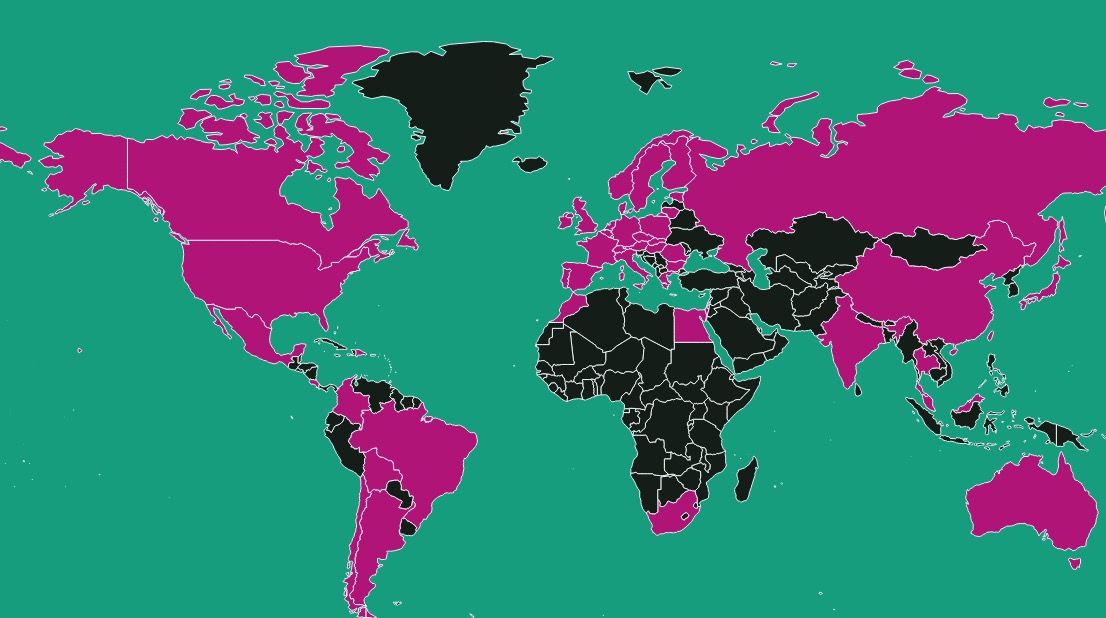Behaviour and Mental Health
All behaviour can be seen as communication. In PWS, the questions, “When do behaviours start?” and “How do I handle challenging behaviours?” are always asked. Communication will often breakdown – between the parent and child, the child and teacher, or friends, or other family members, the options are endless! So how do we try to avoid this breakdown? The main issue arises from heightened anxiety levels, firstly from the person with PWS, and also from the person trying to understand. We need to be able to look at anxiety and all its sub-forms, such as avoidance and non-compliance, denial, perseveration and muddledness, frustration, becoming argumentative or recognising a drop in communication levels, compulsive behaviours , all of these which can lead to a “blowout” or “meltdown” situation. Let’s explore some of the issues.
Behaviour as a form of communication
If we try to look at behaviour as a form of communication – that the person is trying to tell us something that they might not have the verbal ability or comprehension to do so, then we can separate the behaviour from the person and look at what they are trying to say. All behaviour is a form of communication – it’s how we perceive and interpret that behaviour that will lead to success or failure. It’s a bit like learning another language. We all perceive differently, therefore we communicate differently.
When do behaviours start?
So-called challenging behaviours are not usually around during the first few years of life. Teenage and young adult years are when we generally see the more challenging behaviours. As the person ages into their 30s and older, they are generally less challenging, but can have more medical challenges.
Why do we call behaviour challenging?
Perhaps it’s because we (as parents, or caregivers, siblings, grandparents – anyone, in fact, who is involved with the care of a person with PWS, no matter what the age) find these behaviours as out of the ordinary – they’re not ‘normal’, they can be embarrassing, we don’t understand them, they can be scary and even dangerous and can quickly escalate to a total outburst and meltdown before you can turn around.
Behaviours can quickly escalate from nothing out-of-the-ordinary to verbal outbursts and abuse, physical abuse, crying fits or hissy fits, violence, self-mutilation and trashing.
It can be very scary.
There is a goal for success – it’s simple: we need to gain the trust, respect, and bonding of the person in order to reach success. (in fact, that’s true for any relationship!)
“Challenging communication” has been described as ‘the emergence of disruptive or destructive behaviours is often the person’s way of communicating with an incomprehensible and non-responsive world’ (Donellon, Mirenda, Mesaros & Fassbender, p.18.1985)
So, it is learning to interpret the behaviour, as a communication, that is the key. The thing is, we interpret everyone’s behaviour according to our own perceptions – whether we like, or dislike a person, what we judge them on, and how they measure up, etc. Well, guess what? People with PWS will also interpret everyone’s behaviour, but according, of course, to their own perceptions. And we know that people with PWS have very concrete perceptions! We know that they make up their minds regardless of whether they are right or wrong, we know that they like hierarchy, and we know that once they’ve interpreted your communication, they will also have judged you, too.
We interpret behaviour by our own social codes; we know how to monitor our behaviours, how to hid our feelings, how to be polite, we understand how to reason, to make allowances, to compromise, to forgive. People with PWS will not have the same social code as you, and their behaviours are often described as manipulative.
I would ask you to think about this word “manipulative”. It means, getting what we want , usually by unfair or insidious ways and means. But we have learned several things about the syndrome and how it affects people: We know a person with PWS is very ego-centered, with little ability to “self monitor”. We know that their world becomes ‘themselves’, we know that most behaviours can be traced back to the hows and whys of food-sourcing. We also know that PWS is a ‘starvation syndrome’ and survival for a person means eating.
So – are the behaviours manipulative, or are they just a way of surviving in a world that is contrary and often scary? If we perceive PWS behaviours as manipulative, then the way we work with them, support them, and respond to them, will be skewed to our perception of being manipulated.
Communication breakdown
People with PWS like concrete outcomes, they like visual interpretations – something they can see will happen a certain way: a staff member (or teacher) will be there at a certain time, on a certain day, and they will be doing certain things. People with PWS are not good at guesswork, so, if you can, try to make your communications visual, and concrete, so their expectations are not put at variance.
Most “PWS behaviours” that result in a loss of self-control (be it verbal or physical) will have come from a communication breakdown and will have been exacerbated by anxiety. Anxiety, therefore, is the biggest precursor (or clue) to what might happen next. It is the best warning we will get, so learn to recognise what makes your person with PWS, anxious. It can be over little things: when is it going to happen, who will be there, what is expected of me, I can’t do this, I don’t understand… or it can be over bigger things: “will I get caught? why can’t I have more? I hate you – I’m leaving.”
Anxiety
We all know what it feels like to be anxious, frustrated, annoyed, or stressed. We know how easy it is for our anxiety levels to rise and for our behaviours to become abrupt, curt, even angry to the point of losing our tempers, saying the wrong thing and often making situations worse. Anxiety, if not controlled, will lead to an escalation in behaviour.
It’s just the same, if not more, for people with PWS. Anxiety for them is the inability to control an already difficult world. We know that they are very ego-centric, that the world revolves around them, so think how easily things can get out of control for them.
Lots of behaviours will increase in intensity and many of these will be easily recognisable:
- Avoidance or non-compliance
- Denial
- Perseveration, muddledness
- Frustration
- Argumentative
- Drop in communication levels
- Compulsive behaviours
If you see a rise in any of these behaviours, you will know that somewhere along the line there’s been a communication breakdown. It’s time to wind back the clock and find out what’s gone wrong.
You can use a variety of strategies:
Avoidance/non-compliance: Give options, and offer to help with the task, or offer alternative solutions and be creative. Check that the task is understood, check the level of abilities around that task, break the task into manageable parts.
Denial: Denial is often used as self-defence (it wasn’t me, I didn’t do it!) and, quite frankly, there’s no point in accusation unless you’ve caught the person red-handed; just note your suspicions and pass the information on (“I think there was a $10 note taken from my car – please keep a check on any new purchases…”). Don’t use open or closed questions and expect an accurate answer – it won’t happen. You may choose to ignore the situation rather than engage in argument.
Perseveration/muddledness: Take time to answer fully and check to make sure the person has understood you – get them to tell you what is required of them. Break the task into manageable components. Redirect to one task at a time. Use visual aids if necessary. Put a time limit on questioning. Make sure you have not given the person too many choices – that is a sure way to raise anxiety.
Frustration: Take time to backtrack. Ask simple closed questions (where a yes or no answer will help you quickly understand). Make sure your communication has been understood. Provide good, logical details and reasons and make sure of your facts. People with PWS appreciate being told the full facts rather than a “just because” answer.
Argumentative: You won’t win an argument, so don’t answer back, no matter how tempting it might be. Take a break, especially if the person is becoming vocal and abusive. Ask if they’d like some time to be on their own. Try to diffuse the situation by asking questions like “tell me what happened so we can try to sort it out”. Try to reach a solution or compromise and if necessary, bring in a third person to listen.
Sometimes arguments come completely from left-field, especially when engaged in denial, and then, suddenly, the person with PWS has made themselves the victim and is accusing everyone of not understanding them, of being unfair, and misunderstood. Somehow, when it is perfectly obvious to everyone else that the person with PWS is in the wrong, they have neatly turned the tables on you, and you’re the ‘bad guy’. This just goes to prove that a concrete outcome has not yet been reached. It’s better to leave things for a while, rather than engage in further argument.
Sometimes you can negotiate a catch phrase that the person feels comfortable with (“this is going nowhere, lets both back down a bit”, or “can you find a way to resolve this for me?”). This is a good way of empowering the person to find a way to reach a compromise.
Drop in Communication Levels: This is not a common thing, most people preferring to raise the level of communication! However, when it does happen, you will notice the person seeming to withdraw into themselves, maybe start crying. Take a short break, give the person time to collect themselves. Then give them something important to do – a task they might enjoy. Don’t insist if they don’t want to, but leave the option open.
Compulsive Behaviours: This is sometimes linked with autistic-like behaviours (read more on this) and can present as possessiveness, absolute insistence, accumulation of possessions, repetitive behaviours, may seem irrational. A task that might appear simple, becomes extremely time-consuming and can only be done their way. This might often happen just as you’re leaving the house, about to do something, etc. Reasoning might not be possible and sometimes a person needs to learn from their mistakes and if they miss out on an outing, so be it. But make sure you have Plan B!
Blow-outs and Meltdowns: These happen. No matter how well prepared you think you are, how well you think you have your strategies planned, meltdowns and blow-outs happen. You might have missed a precursor, or trigger, missed noticing a communication breakdown, and by the time you’ve realised it, it’s way too late.
During a meltdown, make sure the person is safe, does not have access to sharp tools, breakable objects and so on. Make sure everyone else (including you) is safe. You will have to wait this one through – it will burn out, given time. During the recovery phase, you have only one duty – make sure you do not re-ignite the situation! Stay quiet, give the person space, play quiet music, carry on as though everything were normal. It can be hard to do, but it is the best way to bring a person out of a meltdown. And, please, don’t forget – this is the syndrome working here.
When everything has calmed down – maybe the person with PWS has had a sleep – you will probably find they will apologise for their behaviour. Nearly every person with PWS I have ever met (and there have been many!) apologises and asks forgiveness. Accept the apology quietly. Now is the time to ask if they want to talk about it – if the answer is no, do not persist.
Summary
- Parents – it is not your fault. Nothing you did before or during pregnancy caused PWS. It happens randomly and can happen to anyone.
- Understanding the person and understanding the syndrome are two different things; your child comes first.
- PWS characteristics are the same around the world and they can be managed.
- When things go wrong, you may hate the syndrome, but do not hate the child. They cannot help it.
- Anxiety is the biggest threat to them. It is the precursor to so much more.
- Anxiety comes in different forms – learn to recognise them and how to avoid escalation.
More pages
Promoting Positive
Behaviour
Confabulation
Coping with change
Managing a meltdown
Setting boundaries
A guide to rituals
and obsessions
Motivating someone with PWS
Skin picking
< Back to Information for Families
International Community
IPWSO was established so that PWS associations, families, clinicians and caregivers around the world could exchange information and support and have a united global voice under one umbrella.
Information for Medical Professionals
The latest medical and scientific research and information, plus guides into common medical issues affecting people with PWS.
What is PWS?

Prader-Willi syndrome is a complex genetic condition. Various studies have shown that between 1 in 15,000 to 25,000 children are born with Prader-Willi syndrome and it affects all races and both sexes equally.
Free Diagnosis

If you suspect your patient has Prader-Willi syndrome, based on the clinical signs and symptoms, but are unable to access testing in your country, then you may be able to access free testing.




